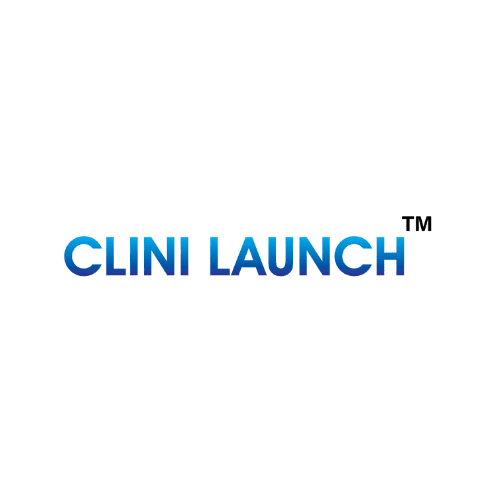The healthcare sector is in constant flux, a dynamic ecosystem shaped by technological advancements, evolving patient expectations, and increasing regulatory complexities. As we navigate the landscape of 2025, the demand for adept healthcare management professionals has reached an unprecedented high. The ability to effectively lead, strategize, and innovate within this intricate environment is no longer a desirable trait but a fundamental necessity for ensuring the delivery of quality care and sustainable healthcare systems.
Several converging forces have amplified the criticality of robust management skills. These include the imperative for enhanced outcomes, the drive for Healthcare Innovation, the complexities of Hospital Administration, and the urgent need for visionary Healthcare Leadership. Let’s delve deeper into why these factors underscore the indispensable role of skilled healthcare managers in shaping the future of healthcare.
Factors Influencing Healthcare Management

Enhanced Patient Outcomes
At the heart of the healthcare system, the fundamental goal lies in improving patient outcomes. In 2025, this objective is more critical than ever, driven by a confluence of factors including an aging population, the prevalence of chronic diseases, and a growing emphasis on value-based care. Effective management plays a pivotal role in achieving superior outcomes through several key avenues:
Operational Efficiency
Skilled managers streamline workflows, eliminate bottlenecks, and allocate resources effectively within hospitals and clinics. This operational efficiency translates directly to improved patient flow, reduced waiting times, and more timely access to care, all of which positively impact outcomes.
Data-Driven Decision Making
The proliferation of electronic health record (EHRs) and sophisticated data analytics tools provides an unprecedented opportunity to understand patient populations, identify trends, and personalize treatment plans. Healthcare leadership with strong analytical skills can leverage this data to make informed decisions that optimize care pathways and enhance patient outcomes.
Quality Improvement Initiatives
Healthcare managers are instrumental in implementing and overseeing quality improvement programs. By fostering a culture of continuous improvement and utilizing methodologies like Learn and Six Sigma, they can identify areas for enhancement, reduce medical errors, and ultimately improve the safety and effectiveness of care, directly impacting outcomes.
Patient-Centered Care Models
The shift towards patient-centered care necessitates a management approach that prioritizes the individual needs and preferences of patients. Effective healthcare management involves designing and implementing care models that empower patients, enhance communication, and foster shared decision-making, leading to greater patient satisfaction and improved patient outcomes.
Fueling Healthcare Innovation
The healthcare industry is undergoing a rapid transformation driven by relentless healthcare innovation. From artificial intelligence and telemedicine to advanced diagnostics and personalized medicine, technological advancements are reshaping how care is delivered and managed. In 2025, the ability to embrace, implement, and manage this innovation is paramount, making healthcare management skills more critical than ever.
Strategic Adoption of Technology
Healthcare leadership must possess the foresight to identify and evaluate emerging technologies that can enhance efficiency, improve accuracy, and expand access to care. Effective healthcare management involves developing strategic plans for seamless integration of existing healthcare systems.
Driving Digital Transformation
The digital revolution is transforming all aspects of healthcare, from patient engagement to administrative processes. Skilled healthcare managers are crucial in leading this digital transformation, ensuring data security, interoperability of systems, and user adoption of new technologies.
Fostering a Culture of Innovation
True innovation in healthcare requires a supportive organizational culture that encourages experimentation, collaboration, and the adoption of new ideas. Effective management in healthcare involves creating an environment where innovation can thrive, leading to continuous improvement in care delivery and patient outcomes.
Regulatory Frameworks
The rapid pace of healthcare innovation often outpaces regulatory frameworks. Healthcare managers must possess a deep understanding of evolving regulations and ethical considerations to ensure the responsible and compliant implementation of new technologies.
Modern Hospital Administration

Hospital Administration in 2025 presents a complex web of challenges, demanding sophisticated management skills to navigate effectively. From managing intricate financial systems and diverse workforces to ensuring regulatory compliance and optimizing resource allocation, the responsibilities of hospital administrators are multifaceted and critical for the smooth functioning of healthcare facilities.
Financial Stewardship
Hospitals operate within increasingly complex financial landscapes, facing pressures to control costs while maintaining quality of care. Effective healthcare management in administration requires strong financial acumen, including budgeting, revenue cycle management, and strategic financial planning to ensure the long-term sustainability of healthcare organizations.
Human Resource Management
Hospitals are people-centric organizations, relying on a diverse workforce of physicians, nurses, allied health professionals, and administrative staff. Skilled hospital administration involves effective recruitment, retention, training, and motivation of this workforce to ensure optimal performance and a positive work environment.
Regulatory Compliance and Risk Management
The healthcare industry is heavily regulated, with stringent requirements related to patient safety, data privacy, and quality standards. Healthcare management in hospital administration necessitates a thorough understanding of these regulations and the implementation of robust risk management strategies to protect patients and the organization.
Supply Chain Management
Efficient management of medical supplies, pharmaceuticals, and equipment is crucial for the smooth operation of hospitals and directly impacts patient care. Effective Hospital Administration involves optimizing supply chains to ensure timely availability of necessary resources while controlling costs.
Visionary Healthcare Leadership

Ultimately, navigating the complexities and opportunities of the healthcare landscape in 2025 requires strong and visionary Healthcare Leadership. Leaders in this sector must possess a unique blend of business acumen, clinical understanding, and a deep commitment to improving patient care.
Strategic Vision and Planning
Effective leadership involves developing a clear vision for the future of the organization and translating that vision into actionable strategic plans that address evolving challenges and opportunities. This includes anticipating future trends, adapting to market changes, and positioning the organization for long-term success.
Effective Communication and Collaboration
Healthcare is a collaborative endeavor, requiring seamless communication and coordination among diverse stakeholders, including physicians, nurses, administrators, patients, and policymakers. Strong healthcare leadership fosters a culture of open communication, collaboration, and mutual respect.
Change Management Expertise
The healthcare industry is in a constant state of change. Effective Leadership requires the ability to lead and manage organizational change effectively, ensuring buy-in from stakeholders and minimizing disruption to patient care.
Ethical Decision-Making
Healthcare leaders are frequently faced with complex ethical dilemmas. Strong leadership is characterized by a commitment to ethical principles, transparency, and a focus on the best interests of patients and the community.
Conclusion
In conclusion, the skills of Healthcare Management professionals are more critical in 2025 than ever before. The relentless pursuit of enhanced patient outcomes, the transformative power of healthcare innovation, the intricate demands of hospital administration, and the crucial role of visionary healthcare leadership all underscore the indispensable nature of effective management in this vital sector.
As the healthcare industry continues to evolve, investing in the development of skilled and adaptable healthcare managers is a strategic imperative. It is a fundamental necessity for ensuring a future where high-quality, accessible, and innovative healthcare is a reality for all. The challenges are significant, but with strong healthcare management at the helm, the opportunities to improve lives and build a more sustainable healthcare system are even greater.





